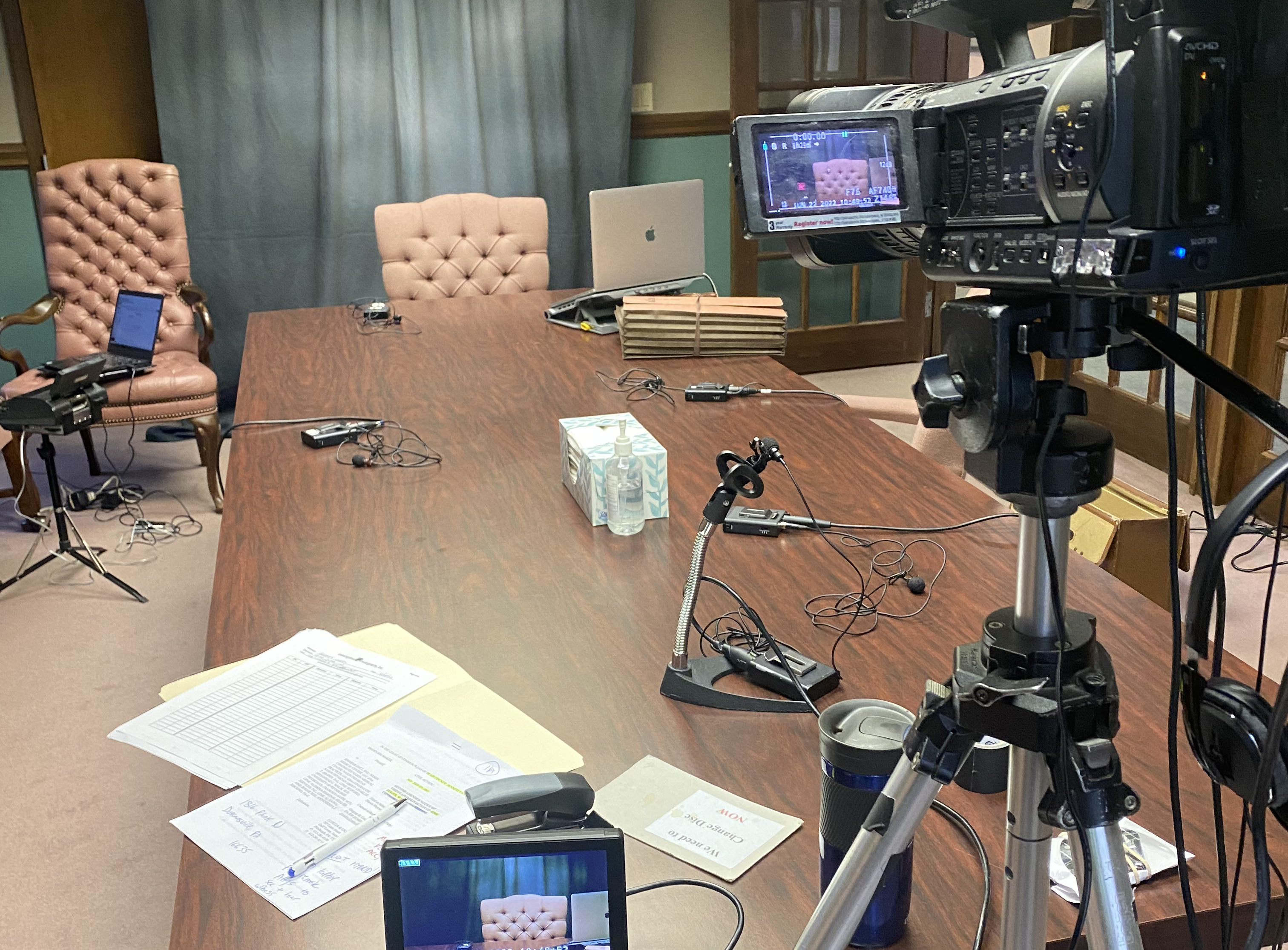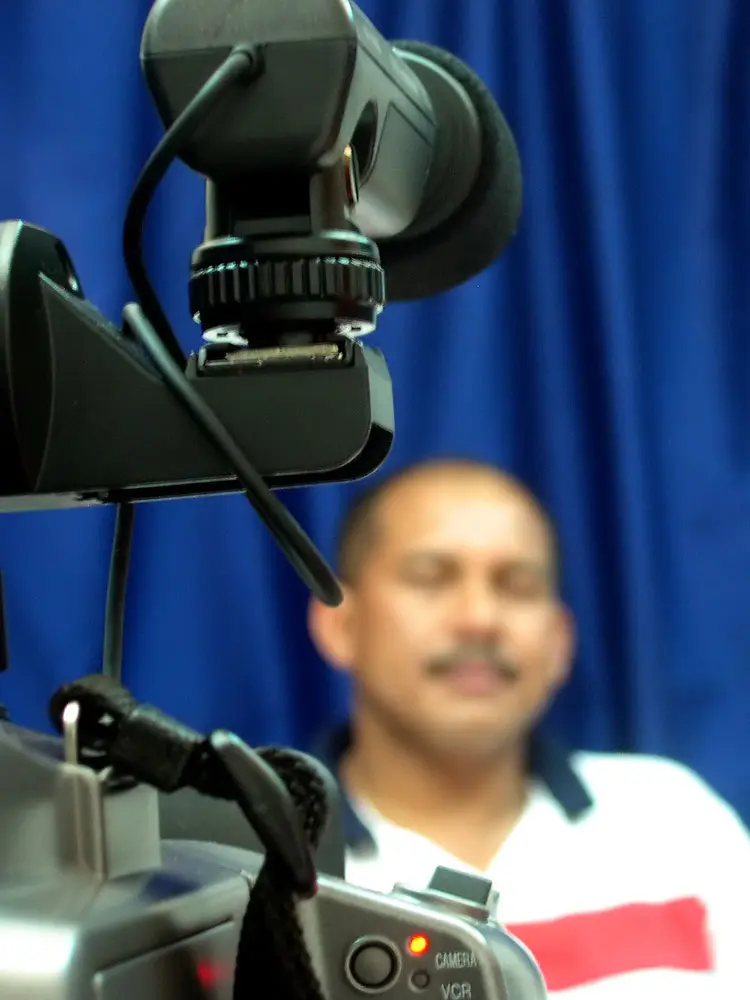Top 10 ways legal video depositions can benefit your next case
The Relevance of Lawful Video Clip Depositions in Modern Legal Services: What You Must Know
Lawful video depositions have actually become necessary in today's legal landscape. They supply a multidimensional view of witness testimonies that standard records just can not match. By capturing both verbal and non-verbal communication, these depositions enhance the total understanding of a witness's reputation. Nonetheless, the effectiveness of video depositions depends upon numerous variables, including conformity with legal criteria and best practices (legal video depositions). Checking out these components exposes their real significance in modern lawful services
What Are Legal Video Clip Depositions?
Legal video clip depositions work as a vital tool in the lawsuits procedure. They involve tape-recording witness testimonies in a video layout, capturing both spoken and non-verbal interaction. This method permits attorneys to document the disposition, expressions, and reactions of witnesses, giving a richer context for the statement. Usually carried out in a regulated atmosphere, these depositions are led by attorneys who ask questions while a court press reporter records the dialogue. The resulting video clip can be essential for trial prep work, as it allows legal representatives to assess the reputation of witnesses and fine-tune their methods. Additionally, lawful video depositions can be used in numerous lawful contexts, ranging from civil disagreements to criminal cases. The auditory and aesthetic aspects of video depositions improve the presentation of evidence, making it a crucial part in the contemporary legal landscape. On the whole, they contribute significantly to the performance and efficiency of lawful process.

Benefits of Video Clip Depositions Over Traditional Methods
Video depositions supply many benefits contrasted to typical techniques of taking witness testimonies. One substantial advantage is the capability to catch both aesthetic and audio components, offering a more detailed record of the witness's statements. This dual style improves quality and enables lawyers to reference particular nuances throughout trial prep work. Furthermore, video depositions promote remote engagement, making it less complicated for witnesses that might be inaccessible for in-person appearances because of geographical constraints or health issues.Moreover, video clip depositions can expedite the total deposition process, lowering the moment and prices connected with traveling and logistics. They additionally enhance availability, as recorded depositions can be easily shared among lawful groups and referenced any time. This convenience adds to far better situation management and prep work. Overall, video depositions represent a contemporary, efficient strategy to gathering witness testaments, straightening with the evolving needs of the lawful occupation.
The Duty of Body Language and Tone in Testimonies

In lawful video depositions, body language and tone play vital duties in conveying a witness's reputation and trustworthiness. Nonverbal hints can provide understandings into a witness's emotion, affecting exactly how their statement is regarded. Comprehending the effect of these elements is essential for jurors and lawyers alike when evaluating the reliability of a testament.
Nonverbal Interaction Insights
While verbal communication is usually stressed in lawful statements, nonverbal signs such as body movement and tone play an essential role in conveying reliability and emotion. Onlookers of depositions might keep in mind that a witness's posture, motions, and facial expressions can significantly influence assumptions of reliability. For example, consistent eye get in touch with may signify confidence, while preventing stare might recommend dishonesty or discomfort. In a similar way, the tone of voice-- its quantity, speed, and pitch-- can pass on feelings of genuineness or unpredictability. Lawyers must be in harmony with these nonverbal signals, as they often offer essential context that enhances spoken words. Comprehending these subtleties can enhance the effectiveness of depositions and influence the outcome of legal process.
Psychological Tone Impact
The psychological tone communicated throughout lawful testimonies substantially influences just how a witness is regarded. Body movement, singing inflections, and facial expressions play important duties in shaping the story of a statement. A witness displaying confidence through stable eye get in touch with and a calm tone can infuse a sense of dependability and involvement. Alternatively, signs of stress and anxiety, such as fidgeting or a shaky voice, may bring about skepticism concerning their account. The nuances of psychological expression can affect the analysis of truths, making it necessary for attorneys to acknowledge these signs. In image source video depositions, the aesthetic and auditory parts incorporate, stressing the value of psychological tone in sharing genuineness and truthfulness within the lawful procedure.
Trustworthiness and Reliability
A vital variable in establishing credibility and credibility during statements hinges on the witness's body movement and tone of voice. Observers typically rely on non-verbal hints-- such as eye contact, position, and motions-- to examine a witness's genuineness. A witness that keeps eye call and displays open body language may be perceived as more reputable and truthful than one that prevents eye get in touch with or shows up shut off. Additionally, intonation plays an important role; a constant, calm tone can strengthen the integrity of the testament, while variations in pitch or volume might raise doubts. Eventually, the mix of body movement and singing tone substantially influences how a witness's statements are received and translated in a lawful context.
Ideal Practices for Carrying Out Video Depositions
Conducting video clip depositions needs careful preparation and implementation to assure a effective and clear presentation of testimony. First, it is essential to pick a peaceful, well-lit place to reduce disturbances and safe optimum video high quality. The devices must be checked ahead of time, consisting of electronic cameras, microphones, and illumination, to prevent technical issues throughout the deposition.Next, celebrations involved must examine the format and treatments beforehand, making certain that everyone comprehends their functions. The deponent should be oriented on the process, consisting of exactly how to respond clearly and concisely.Additionally, maintaining a specialist disposition throughout the session is important. This includes avoiding speaking over each other and verifying that all concerns are routed suitably. It is vital to videotape the deposition in a style that allows for simple playback and testimonial, maintaining the honesty of the testimony for future usage.
Legal Considerations and Compliance Issues
Exactly how do lawful factors to consider and compliance problems impact the efficiency of video depositions? Lawful experts need to navigate an intricate landscape of guidelines, guaranteeing that video clip depositions abide by jurisdictional regulations and criteria. Compliance with legislations concerning personal privacy, approval, and recording methods is vital. For example, acquiring explicit authorization from all celebrations involved is required to stay clear of lawful repercussions.Additionally, the admissibility of video clip proof in court can hinge on conformity with step-by-step demands. Making certain that the equipment utilized fulfills technological requirements is also important, as low quality can threaten the deposition's reliability.Moreover, attorneys must recognize any type of certain state laws that govern video depositions, as these can vary greatly. Failure to address these considerations can not only threaten the honesty of the deposition but likewise affect the overall instance method, eventually affecting the customer's legal results.
Exactly How Video Depositions Influence Court Perception
While video clip depositions can work as effective tools in legal proceedings, their influence on jury assumption is substantial. The visual and acoustic elements of video recordings provide jurors with a more complete understanding of witness disposition, trustworthiness, and psychological actions. This multimedia technique can enhance the jurors' ability to examine the dependability of statement contrasted to standard text-based transcripts.Moreover, video clip depositions enable jurors to observe body language, tone of voice, and faces, every one of which can influence their analysis of the witness's declarations. The presence of a witness on screen can humanize them, cultivating empathy and connection, which might persuade jurors' point of views. Conversely, a witness that shows up evasive or unreliable on video clip may lead to adverse assumptions that influence a court's decision. Eventually, the dynamic nature of video clip depositions plays a crucial role in forming exactly how jurors analyze evidence and reach their verdicts.
The Future of Video Depositions in Legal Technique
As developments in modern technology proceed to improve the legal landscape, the future of video depositions is poised for substantial advancement. Advancements such as expert system, virtual truth, and boosted video conferencing tools are expected to streamline the deposition process and boost access. Lawful specialists might utilize AI-driven analytics to assess witness integrity and case strength a lot more effectively.Moreover, the assimilation of digital reality could enable courts to experience immersive simulations of depositions, giving deeper context and understanding. Furthermore, the fad towards remote depositions is most likely to persist, offering higher flexibility for clients and lawyers alike.As remote work ends up being increasingly normalized, video clip depositions will likely come to be standard method, reducing costs and time restraints connected with standard approaches. Generally, these technical advancements promise to enhance the performance, performance, and accessibility of video depositions in legal method, inevitably transforming exactly how attorneys prepare for trial.
Often Asked Concerns
Just How Much Do Lawful Video Depositions Commonly Cost?

Can Video Clip Depositions Be Used in Any Kind Of Kind Of Instance?
Video depositions can be utilized in different sorts of instances, consisting of civil, criminal, and family legislation. Their adaptability allows attorneys to present witness testimonies efficiently, adjusting to the details requirements of different lawful situations.
What Tools Is Required for a Video Clip Deposition?
To conduct a video deposition, necessary equipment includes a top notch cam, microphone, this page lighting, and a trusted recording gadget. Furthermore, a computer with editing software may be required for post-production and formatting the last video.
For how long Does a Typical Video Deposition Last?
A normal video clip deposition lasts between 2 to 4 hours, relying on the complexity of the try this instance and the number of concerns postured. Extended sessions may happen, however breaks are usually integrated for participant convenience.

Are Video Depositions Admissible in Court?
Video clip depositions are typically admissible in court, offered they stick to lawful standards and regulations of proof. Their use enhances clearness and maintains witness testimony, aiding in the judicial process during hearings and trials. Legal video depositions have come to be essential in today's lawful landscape. Additionally, legal video clip depositions can be used in numerous legal contexts, ranging from civil conflicts to criminal cases. Additionally, video depositions help with remote involvement, making it much easier for witnesses that might be unavailable for in-person looks due to geographical constraints or wellness issues.Moreover, video clip depositions can speed up the total deposition process, lowering the time and prices linked with travel and logistics. Guaranteeing that the equipment used meets technological requirements is also important, as inadequate quality can threaten the deposition's reliability.Moreover, attorneys must be mindful of any type of certain state laws that control video depositions, as these can vary greatly. Additionally, the fad towards remote depositions is most likely to persist, offering higher flexibility for lawyers and clients alike.As remote work becomes significantly stabilized, video clip depositions will likely come to be common method, minimizing prices and time restraints associated with standard methods.